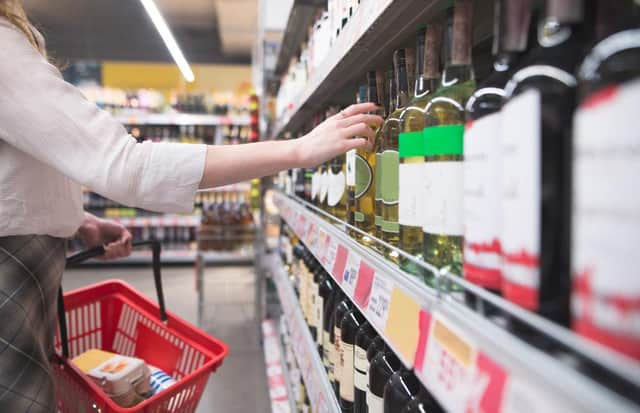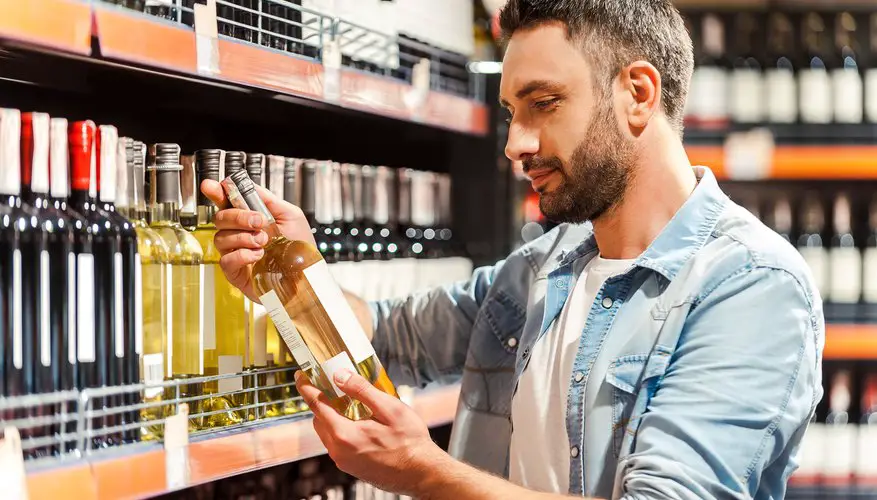Some state laws regarding alcohol are stringent, reminding some of Prohibition despite its 1933 repeal. Certain restrictions, like where and when the products are available for sale or personally producing distilled spirits for private use, are federally illegal.
As long as bylaws are adhered to, individuals have the opportunity to make wine and beer at home, however. The US is one of the most restrictive concerning legal drinking age, which is 21 for most of the 50 states.
Otherwise, the sale and consumption of alcohol in each of the United States is up to its own rules and regulations. The regulatory system falls into two categories essentially, with a state being either an “open state” or a “control state.”
For retail businesses in each location, it’s essential to learn the state’s governing rules for alcohol sales in order to operate within the guidelines. Let’s look more closely at the differences between the two.
Table of Contents
ToggleWhat Are Open vs. Closed States When Regulating Alcohol Purchases?

Whether alcohol is limited for purchase in your particular state will depend on whether your state follows a controlled regulatory system or is an open state. In a controlled rule environment, the state will dictate the distribution and sale of spirits, wine, and beer.
When the state is open with the regulations, the private retailer can make these decisions following the customary laws. When Prohibition was repealed, individual states were given power over regulating alcoholic beverages. This included sales by private retailers.
Government agencies regulate control states or alcoholic beverage control (ABC). The state sets the prices and ensures fewer stores are licensed to sell the products, making access limited.
With this mindset, the idea is that there will be less chance for alcohol abuse and fewer DUI incidents leading to accidents and injuries or deaths. Prices are also higher to discourage bulk purchases to curb consumer consumption.
Currently, there are 17 control states where the government has rules over some aspect of alcohol distribution or sales. These include:
- Alabama
- Idaho
- Iowa
- Maine
- Michigan
- Mississippi
- Montana
- New Hampshire
- North Carolina
- Ohio
- Oregon
- Pennsylvania
- Uta
- Vermont
- West Virginia
- Wyoming
There are other states where specific counties have chosen to take a more controlled approach to their alcohol regulations, including Maryland, where Montgomery County imposes more stringent guidelines for its alcohol laws. Let’s look a little closer at some of the states where buying alcohol is exceptionally limited.
Which States Have The Most Limiting Laws For The Purchase Of Alcohol?

Each state has its own alcohol laws, as was granted upon the repeal of Prohibition. However, the legacy of Prohibition lives on in some of the most stringent guidelines that not only limit where and when you can buy the beverages but whether you have access at all.
Texas
While Texas is not listed as one of the controlled states, it is a very restrictive state with its drinking guidelines. It is a serious crime for an individual to be caught publicly intoxicated, with the possibility of spending roughly 180 days in jail.
A really wild concept is that minors are prohibited from purchasing liquor but have the authority when the product is for “law enforcement purposes.” Youth are also permitted consumption if they are doing so with parental consent and in the parent’s presence.
A store can only achieve a liquor license if they receive voter approval. On certain holidays sales are prohibited, and no sales are allowed on Sundays. If these holidays fall on Sunday, the Prohibition falls on Monday.
New Jersey
Chain stores in this state are allowed two liquor licenses to cover the entire state. Grocers are permitted to sell alcohol, but these licensing guidelines make that a challenge.
Licensing is also limited based on the population. For “every 7500 people,” the municipality is provided a single distribution license, and for “every 3000 people,” they’re allowed one consumption license.
These rules not only make licensure difficult but access to products for people who want to buy them.
Pennsylvania
People cannot buy their spirits from the same stores where they purchase beer or wine. They need to go to different state-run locations since this is a controlled state. Beer is only allowed to be bought by the case. You must purchase a drink at a bar or pub if you want a lesser quantity.
Utah
When at a restaurant, if you order an alcoholic beverage, you need to do so with food. That’s not required if you’re at a pub. A beer from a tap, at the grocer, or from a convenience store must come in at “3.2 percent alcohol weight.”
The primary alcohol in a cocktail must be no greater than 1.5 ounces, and keg sales are prohibited. Utah is a controlled state with state-run stores generally closed on most holidays and each Sunday.
Massachusetts
When people come to Massachusetts from other states for a drink, they can be turned away since restaurants and pubs can refuse out-of-state IDs as proof of age.
These places don’t provide free drinks, will not permit beer games, and don’t offer happy hours in an effort to prevent college students from drinking.
Final Thought
While federal laws govern the consumption and sale of alcohol, each state has been given individual freedoms to designate its own regulations pertaining to distribution, sale, and consumption.
Many states are relatively lenient on when, where, and how much you can purchase. Still, as you can see, a few are incredibly strict with their local laws making access for the average person exceptionally difficult.
Depending on the circumstances, you have the potential to find yourself with severe penalties or a lengthy jail sentence based on the infraction and which state you’re in.
How much alcohol you can buy really depends on the state, county, and town you’re in and the store, pub, or restaurant where you’re buying it. Each is unique in its guidelines.

I am a passionate beer connoisseur with a deep appreciation for the art and science of brewing. With years of experience tasting and evaluating various beers, I love to share my opinions and insights with others and I am always eager to engage in lively discussions about my favorite beverage.
















